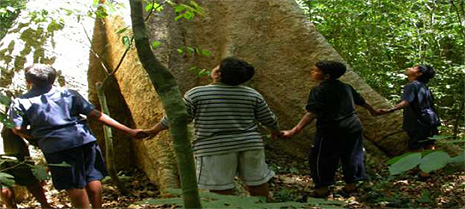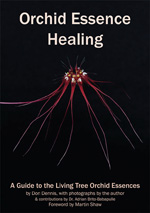1% for Orchid Conservation
IFER has recently joined the efforts of the Orchid Conservation Coalition, and is donating 1% of its annual profit to a charity organization directly involved with orchid conservation. Orchids in the wild are under various levels of threat throughout the world. Countless species have already been lost, many even before they have been found. While tigers and pandas grab the conservation headlines, orchid species conservation is vitally important work, and this is why we are supporting the efforts of the Orchid Conservation Coalition.
The Orchid Conservation Coalition is a non-profit organization that aims to encourage businesses to engage in the 1% for Orchid Conservation program. Read more about their efforts on their website by clicking here.
The recipient of IFER's donation for the financial year ending March 2010 is the Gurukula Botanical Sanctuary in Kerala, India. The Gurukula Botanical Sanctuary (or 'GBS') is a remarkable place, where the finest orchid conservation efforts in the Indian sub-continent take place. You can read more about them either on their website, or as well by downloading this fund-raising PDF which they have recently sent out to their network of supports around the world.
Here below is a brief description of their work.

Since 1981 GBS has been quietly working on "gardening back the biosphere", a unique approach to plant conservation and habitat restoration for rainforest areas. GBS's vision and practice combat species erosion and habitat degradation through ecosystem gardening and forest-based community education for people from every part of society. Its effectiveness is evident in the rising regional and national demand for GBS's plant material, habitat restoration practices and education programmes.
In 2006 the GBS gardener's team received the UK's top environmental prize, the Whitley award, for its conservation programme named the 'Green Phoenix', subsequently leading to solicitations from the international arena. Several unusual landscape-level partnerships have since started between GBS and stakeholders in different areas of the Western Ghats in Southern India, to protect and restore destroyed forest areas. As extractive pressures on wild species increase and the slew of anthropogenic pressures mounts, the collapse of ecosystem function and structure looms up with frightening pace. It is clear to scientists and environmentalists alike, that the single action to combat climate change other than stopping forest loss and reducing emissions through deforestation is the resurgence of natural habitat with a full complement of native species.
GBS's unique effort needs international support to expand in scale and scope to nurture species, habitats and human sensibilities in a fragile ecosystem and to bring about a paradigmatic shift in society's relationship to the living matrix.

ESSENCE REPERTOIRE


2014 Seminars
Seminars Summary
NEWS
Tel: 01583 505 158
Mob: 07584 729 204
We are open to receive telephone orders Monday through Friday
from 10 am till 5 pm except on Bank Holidays.
IFER
Tarbert Farm
Isle of Gigha
Argyll
PA41 7AA




